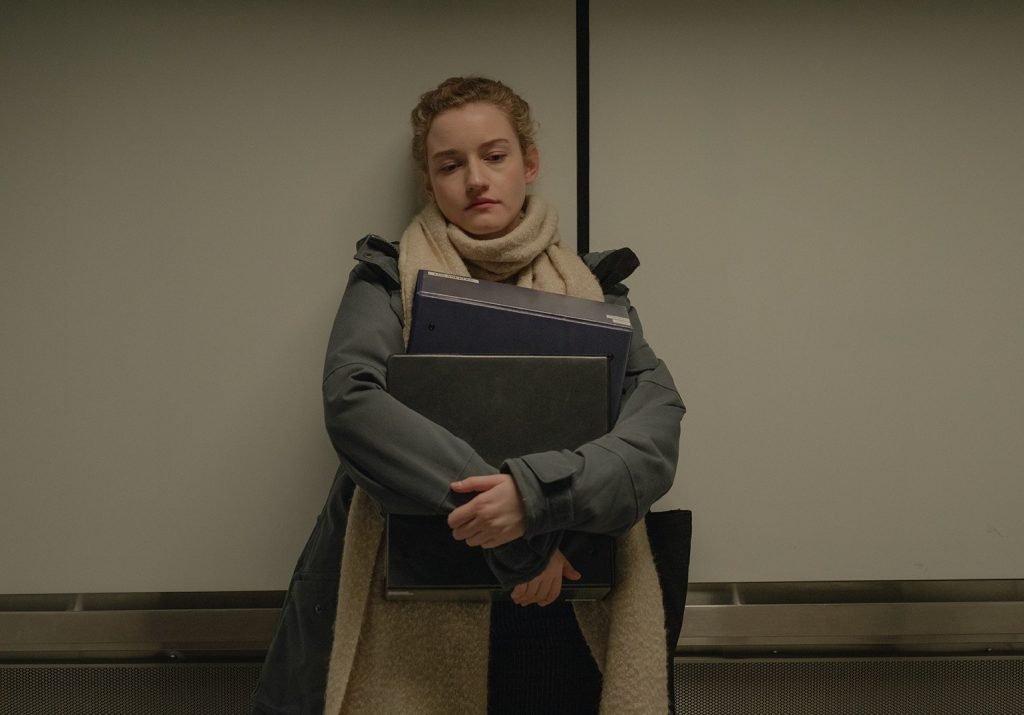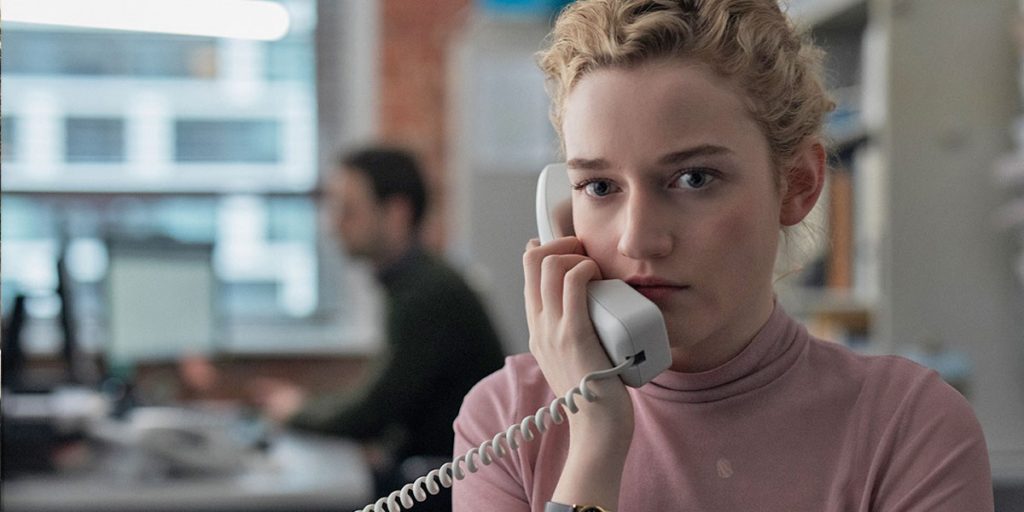The Assistant tells a chilling story of one woman’s experience of the moral apathy that enables a predator to thrive.
The Assistant’s writer and director, Kitty Green, is a documentarian by trade. She has brought that same sort of exacting specificity to her feature film debut. Tracking a day in the life of an assistant to a major studio, The Assistant is obsessed with the details. Each moment is rendered with such specificity: from how our titular assistant arrives early to prepare the office for the day to how she dutifully cleans her boss’s couch of some unmentionable stain. We come to learn she’s a few weeks into an unpaid internship and dreams of someday producing her own films.
The Assistant exudes an authentic experience of how a predator can be allowed to roam free. When one doesn’t know what is happening behind closed doors, it becomes easy to rationalize away what must be. Little acts of apathy normalize the conduct: a quip about never sitting on a particular couch, an eyeroll at the news that a prospective new intern has been taken to a local hotel, a check drafted with no named recipient. Employees go about their day not so much blissfully unaware of what is transpiring, but rather focused on their own tasks. Attentions shift to phone screens, work tasks, and day ending happy hours.
Kitty Green’s directorial skills are significant. She positions her camera with a sort of specificity of formalistic framing that would make David Fincher proud. Each shot is exquisite to behold. Camera movement is nearly non-existent. One early shot sees a row of coffee cups, all looking nearly the same. Our protagonist, Jane, moves aside one mug to find another behind it – the one with the small burst of color and a cute inspirational slogan: Big Hug Mug. The near stifling nature of the filmmaking – icy grays predominate – creates a tone that most resembles a horror movie. The ringing of the phone is a moment of dread. A new entrant to the office is a new opportunity to “disappoint” the boss and receive another withering phone call.

The writing is sharp as well. The gaslighting is oppressive. Jane is both torn down by her unseen boss, and reassured told it’s for her own good, to strengthen her, to make her a great producer someday. It feels authentic, which is a truly impressive writing feat. The film’s closest thing to a climax sees Jane meet with an HR rep played with smug authenticity by Matthew Macfadyen (Pride & Prejudice). As Jane attempts to explain what she’s observed, he shifts the focus, subtly deflecting her accusations and shifting them back as her own insecurities. The new assistant from out of town put up at a fancy hotel? Clearly, Jane is just jealous of her good looks and special treatment. And, of course, the industry needs more female producers so it would be a tragedy to see her throw her career away on such a weak accusation. It’s a dynamite scene and one of the very best of the year.
None of this would work without a strong lead performance. Julia Garner (Ozark) goes above and beyond. She’s always been a tremendous talent, but this is a true breakout performance. She appears in every minute of The Assistant’s run time and carries the film with subtly and smarts. There is no big moment of Oscar-bait crying here. Rather, the performance is built out of subtle moments of realism. Watching Garner’s face nearly give in to emotion as she’s telephonically berated by her boss, only to regain her composure, is impressive. Seeing her struggle with the moral calculus of weighing her professional future against the need to share what is happening in the office through subtle shifts in body language is a sight to behold. She is certain to be on my list of the best performers of the year.
My criticisms here are extremely mild. The Assitant appears to exist in a bit of a time vortex – it’s clearly set in the present, but at the same time seems to exist in a world where the #MeToo movement has not commenced. It is an odd creative choice that led me to frequently question character motivations. The movie’s tone can be cold and distant; and it is certainly a difficult sit for the viewer despite a run time of around 81 minutes exclusive of credits. It can be challenging viewing.
All told, Kitty Green’s narrative debut is one of the year’s finest films and serves as a showcase piece for one of the year’s best performances.
The Assistant is now available on Digital and DVD. Read our review of The Royal Hotel.

